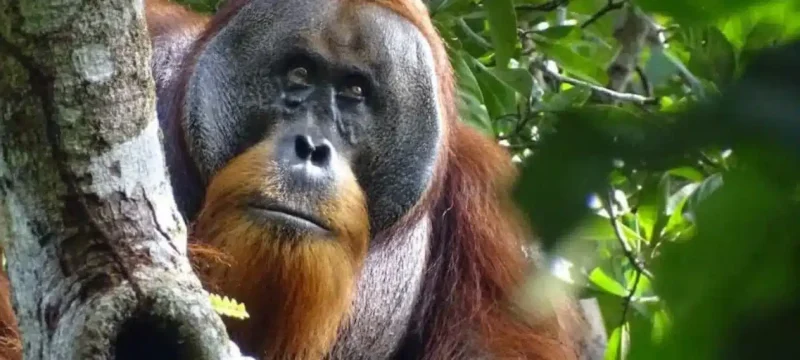The story of Rakus, a male Sumatran orangutan, showcases the remarkable intelligence and adaptability of these fascinating creatures. After sustaining a facial wound in a fight with another orangutan, Rakus demonstrated an extraordinary behavior that caught the attention of scientists.
Observations revealed that Rakus appeared to treat his wound using a plant known for its medicinal properties. He chewed the plant’s leaves to produce a liquid, which he then applied to the wound, resembling a natural form of wound treatment. Additionally, Rakus consumed the plant, indicating a deliberate effort to utilize its healing properties.
Also Read: Neuralink Patient Controls Video Games with Brain Chip
The plant involved, Fibraurea tinctoria, is not commonly eaten by orangutans in the area, making Rakus’s behavior even more intriguing. Researchers noted that his wound self-treatment seemed intentional, as he selectively targeted the affected area and repeated the process several times until the wound healed.
This behavior sheds light on the cognitive capacities of orangutans and their ability to utilize natural remedies for medical purposes. It suggests that such behaviors may have deep evolutionary roots, dating back to the last common ancestor of orangutans and humans.
Orangutans, as one of the world’s great apes, share a significant genetic similarity with humans, despite their adaptation to life in the forest canopy. Their high cognitive abilities, including problem-solving skills and observational social learning, contribute to their survival in their natural habitat.
Overall, Rakus’s behavior highlights the rich cultural repertoire and adaptability of orangutans, offering valuable insights into their evolutionary history and their interactions with their environment.









